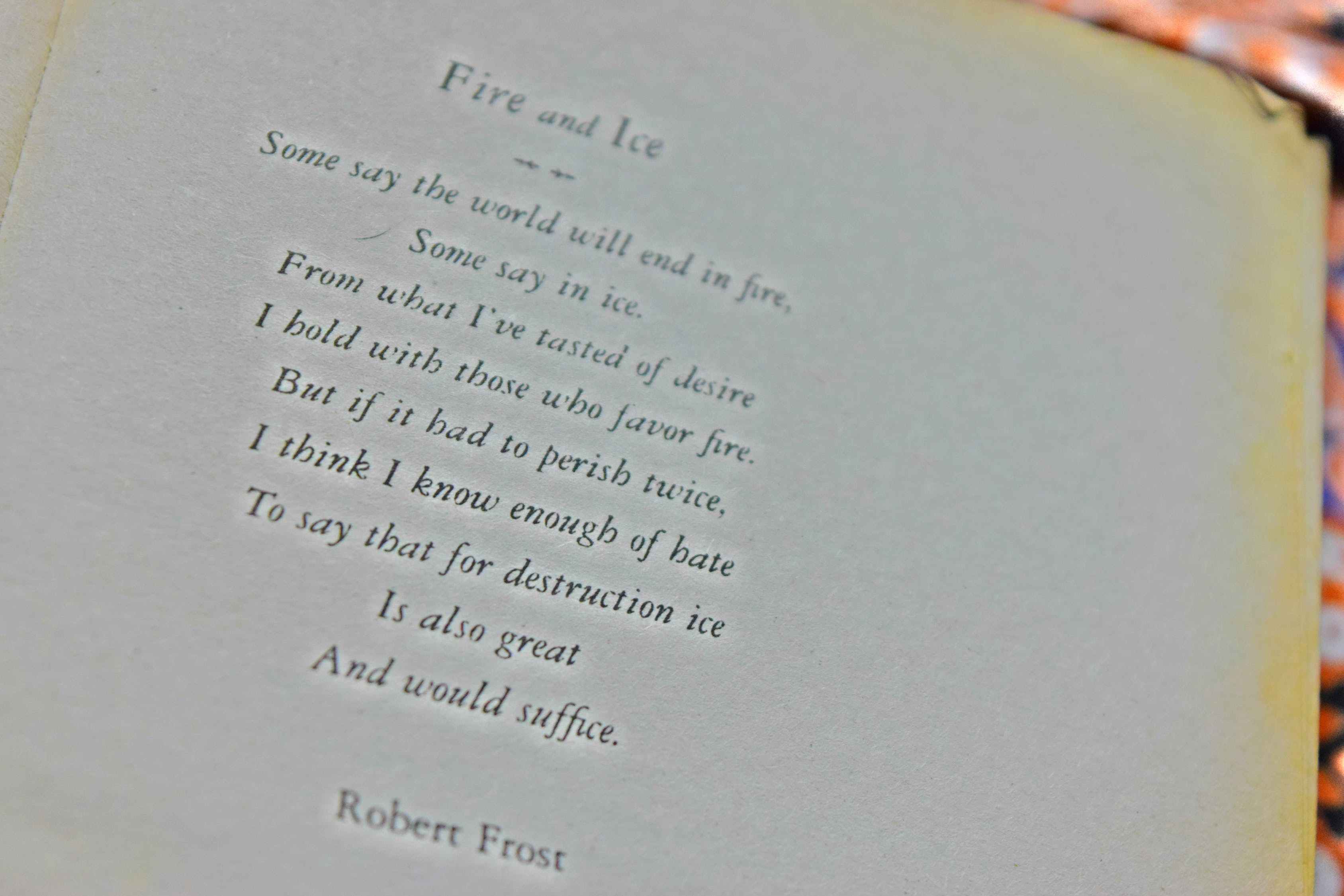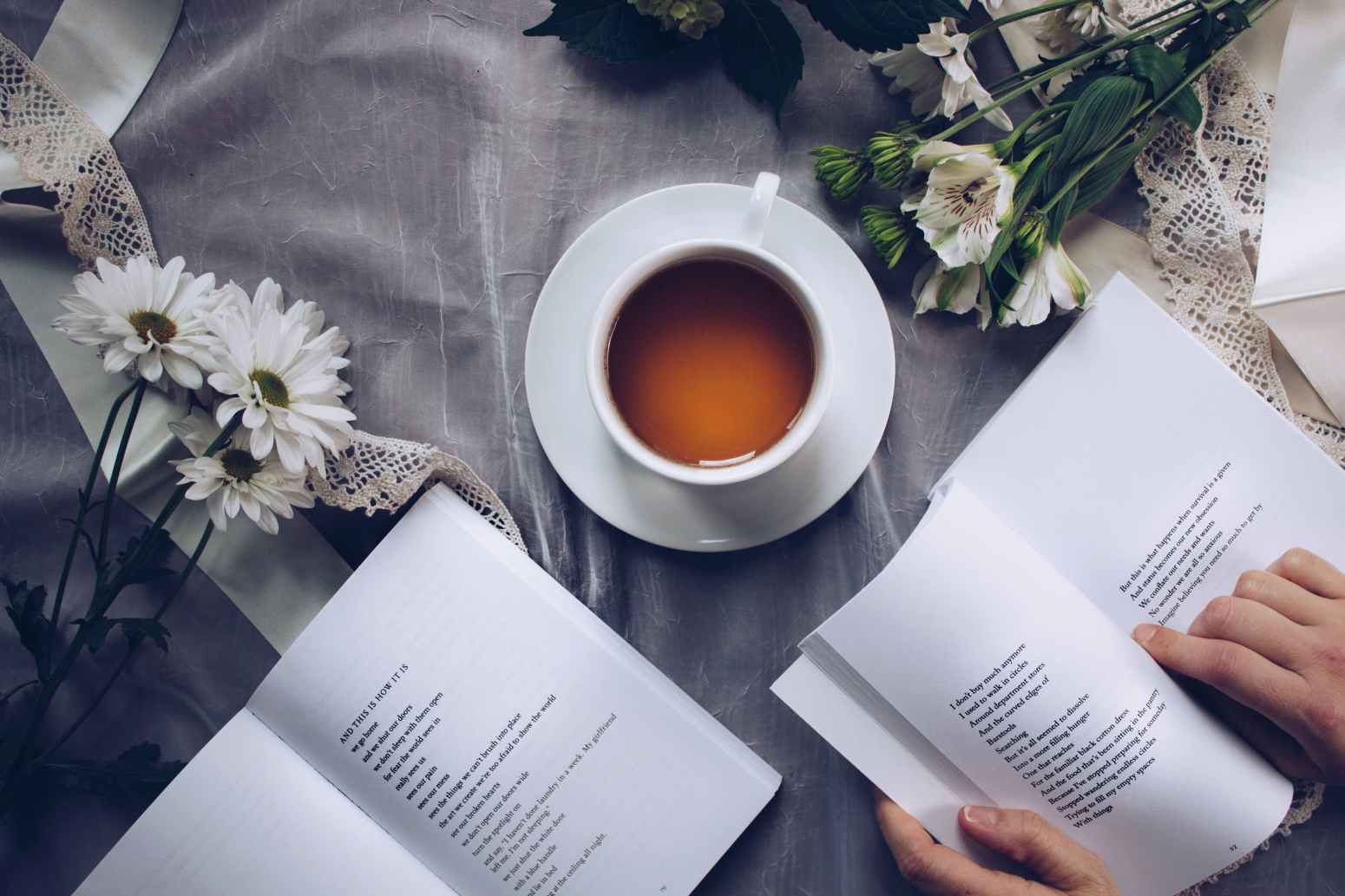For Better with Verse
In the Media
|
||||
For Better with VerseThe author explores the importance of poetry as she calls it a succour for the soul and food for the parched mind.Author: Abhijita Kulshrestha Publisher: Thrive Global The human body and its energy system is a very different mechanism that varies from person to person. Its healthful state and balance is largely dependent on a steady rhythm. The human body is not only its physical form or the gross body, but also includes an emotional body and spiritual body as well. The Indian yoga system describes it as several layers—koshas or sheaths. One eats, hydrates, sleeps and exercises to keep the physical body healthy but nourishment is vital for emotional and spiritual bodies as well. There aren’t any meal times for these, so one has to actually make conscious attempts to practise conscious sensory intake—provide a healthy diet to keep the spiritual and emotional body robust too. It is only when these two outer layers shrivel /deplete for the want of attention, does the physical body become weak and more prone to manifestation of disease or depression. 
If one were to look at poetry in the context of what it does for the human beings, it goes without saying that the underlying appeal of poetry is in the rhythm it offers—and human energy system understands rhythm effortlessly. Here is an attempt to catch poetry—this etheric creature that rides on a lilting wave—and bottle it, for these are the fireflies that add meaning to darkness. If you can do so, read these words at night. Lie down as if to sleep, turn off the light. Now read me with your hands, as light as Braille. My words may fail you, but your touch won’t fail. It will make true what now my heart can see— You whom I don’t know are in touch with me. Vikram Seth, In TouchFragments of a lullaby, odd rhymes that defined the way a juvenile game would proceed, a grandmother’s rickety, raspy voice anointing the sanctity of rituals at a family wedding—these are some of the early few things that one remembers. The words usually do not go missing from the order they were spoke years ago! Poetry is an aid and ode to remembrance. It is an emotional anchor that provides an unshakeable picture of the past—of people, experiences and completeness of things. Poetry can nourish the soul and is a lyrical feast for the senses. Facts are like chunky blocks. Poetry on the other hand is fluid. Energy that moves by itself with ease and transforms the reader in the process. Unhindered by its own weight, poetry offers lightness and ease of expression in a way not many other crafts do. It is quite clear that languages wouldn’t be replete with hundreds and thousands of words (some of them, offering only a slight variation in meaning) if the sole purpose of it was to get by—to simply be understood! Language and communication would flat-line with boredom, should creative expression go missing! Poetry is also the art of brevity—condensing an enormity into a palatable few morsels. And it is these very attributes of this great craft that render it absolutely essential to human beings. We experience a great variety of emotions and some of these are quite complex. This would weigh down with a terrible heaviness unless a vehicle for expression or release comes to the rescue. How does one portray the intensity of emotion without being offensive or overwhelming? Poetry has a capacity to swaddle the waif emotion in a fitting fabric so anyone watching it is filled with wonderment instead of being slammed in the face by the starkness of life. Let us go then, you and I, When the evening is spread out against the sky Like a patient etherized upon a table; Let us go, through certain half-deserted streets, The muttering retreats Of restless nights in one-night cheap hotels And sawdust restaurants with oyster-shells: Streets that follow like a tedious argument Of insidious intent To lead you to an overwhelming question … Oh, do not ask, “What is it?” Let us go and make our visit. T.S. Eliot, The Love Song of J. Alfred PrufrockAnother unrecognised gift of poetry is courage—newer poets are experimental and explore courage through poetic license. Expression does not need to conform to rules, even laws of the real world! It is a great medium to help unravel the mind and shake off fears. There is a possibility of escape into a world of comfort, without the pressure of being correct—all this without any help from pharmacopeia! Beautiful words, holding great meaning within their weave can be great spiritual anchors too. Those who may have felt a fire to find greater meaning, to connect with the source may understand what the mystic Sufi compositions, the hymns, bhajans have an overwhelming effect on people as it strikes a chord, reaching incredibly close to the indescribable. There is no other food to sate the spirit. How else would Imrat, the blind boy with a haunting voice in Gita Mehta’s seminal book, A River Sutrastay with the reader, long after the pages have been exhausted! “The heat of Your presence Blinds my eyes Blisters my skin Shrivels my flesh “Do not turn in loathing from me. O Beloved, can You not see Only Love disfigures me?” Gita Mehta, The Teacher’s Story, A River SutraAnd then there is the constraint of ‘span of attention’ that has come with rise of the new world – information has become shifting sands—and poetry wields power in this environment to transform emotions into punch-packing flavoursome nuggets. One could simply eat all kinds of food off a giant tray, it is food after all, isn’t it? But doesn’t one enjoy a beautifully laid out seven-course meal more? It is a sensory extravaganza and that is why we are better with verse. |
||||
|
Read full story by clicking here |


